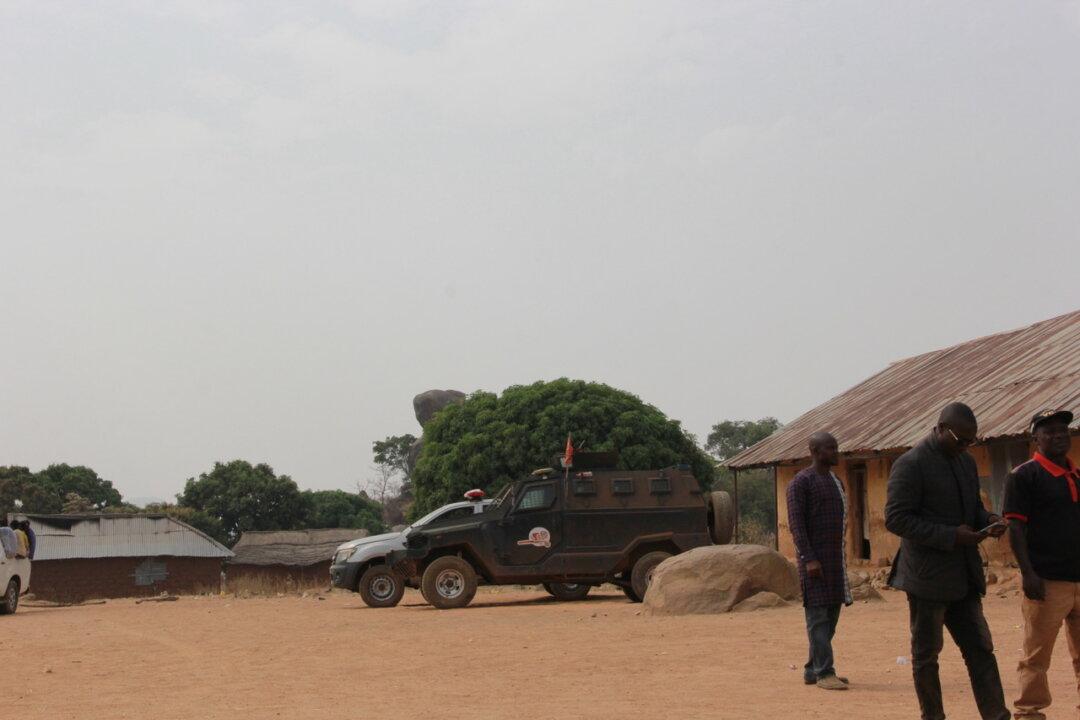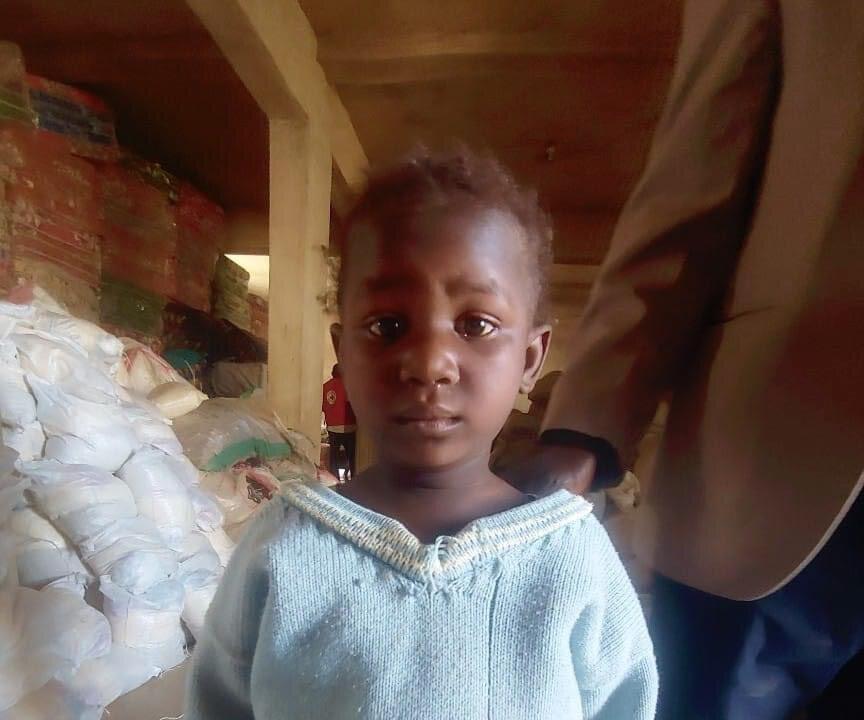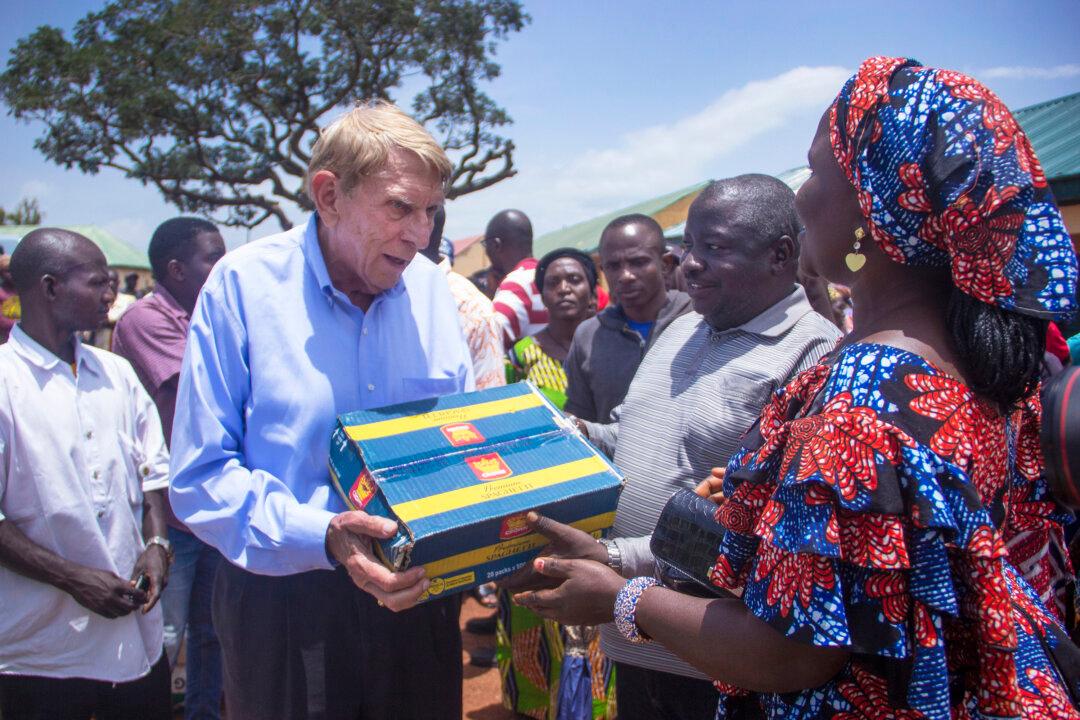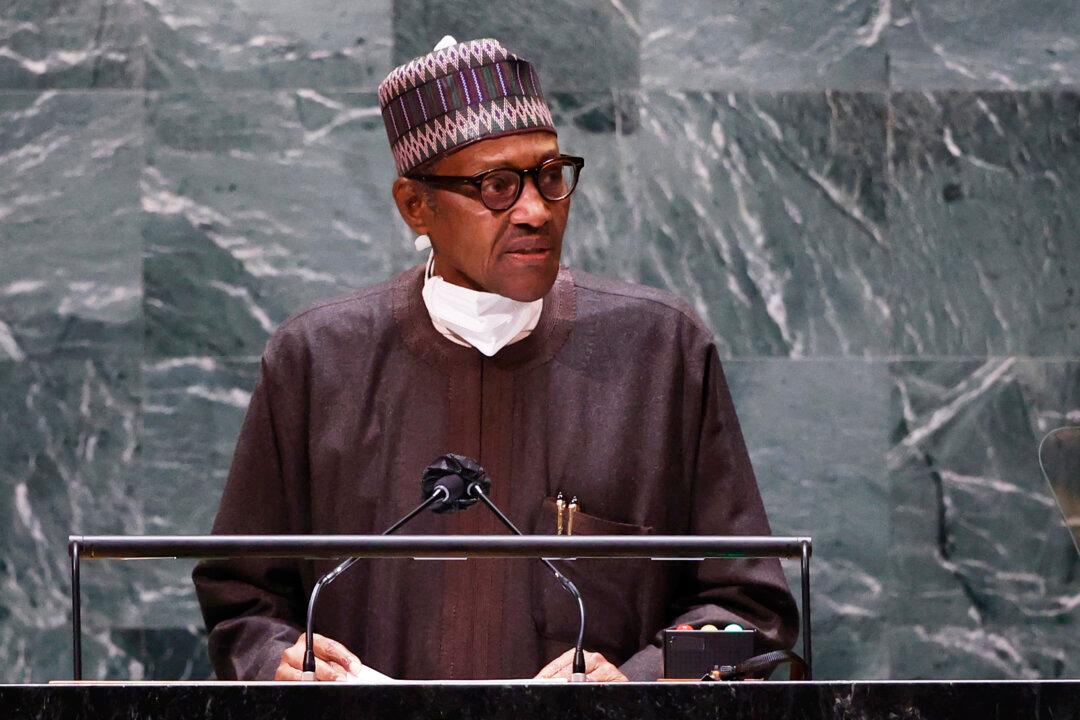
A military truck and armored personnel carrier at a military base in the center of Ancha in Nigeria on Jan. 12, 2022. Masara Kim/The Epoch Times
The scene of the attack was familiar to traumatized villagers in Ancha of Bassa County in Nigeria’s Plateau state on the cold evening of Jan. 11.
A unit of 30 well-armed Nigerian soldiers was stationed in an abandoned school building inside the settlement.






